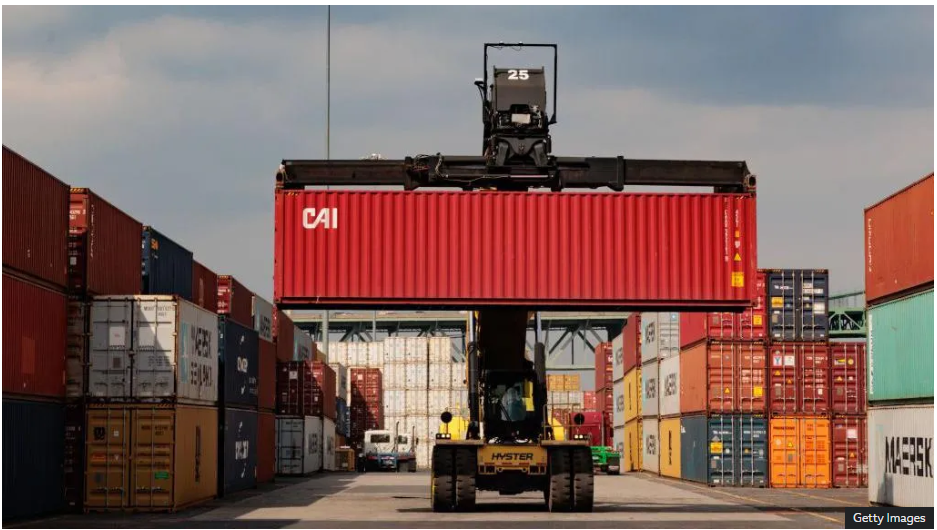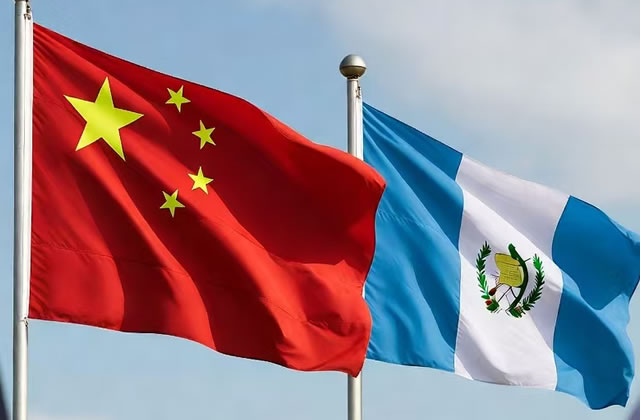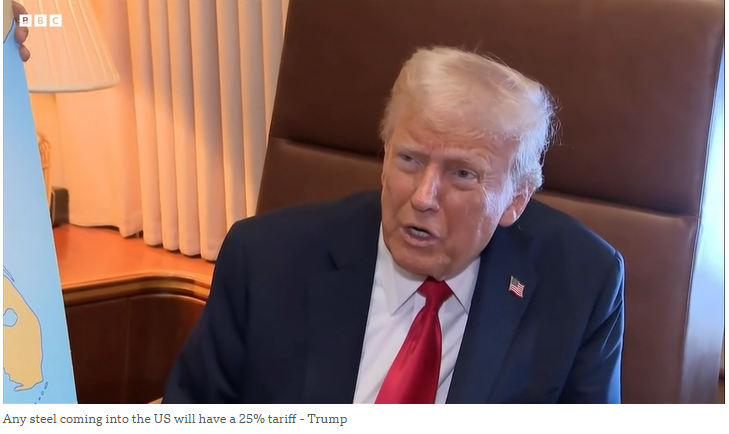US President Donald Trump is intensifying plans to crack down on exports from countries he believes trade policies are unfair to the United States.
On Thursday, Trump signed a memorandum instructing staff to develop tariffs for each country based on factors such as current tariffs, exchange rates, trade balances, and other rules.
The White House expressed its concerns that tariffs imposed by other countries may not necessarily be the biggest issue, and specifically pointed out that other EU policies are detrimental to US exporters.
Which countries may be affected?
The memorandum signed by the President requires staff to report on the "reciprocal trade and tariffs" plan within 180 days.
Howard Lutnick, the Commerce Secretary selected by Trump, stated that his team will be ready to submit a plan to the President before April 1st.
Trump sees his so-called reciprocal tariff plan as part of his efforts to bring investment and promote manufacturing development to the United States.
He said, 'If you manufacture products in the United States, you won't be subject to tariffs,' and added that he was' just doing fair things. '.
He said, 'In almost all cases, the fees they charge us are much higher than the fees we charge them, but those days are gone forever. It should have been done a long time ago.'.
In addition to the European Union, Trump's measures are expected to also affect trade relations with countries such as India, Vietnam, and Thailand, which have relatively high tariffs and rely on the large market of the United States for exports.
Trump signed this memorandum before his meeting with Indian Prime Minister Narendra Modi, who has taken measures to reduce tariffs on key commodities such as motorcycles. Trump had made this a topic of discussion during his first term.
However, at a joint press conference with Modi on Thursday, he still vowed to impose equivalent tariffs on Indian imports: 'Whatever India charges us, we will charge them'.
In recent days, officials from Thailand and Vietnam have also stated that they are reviewing trade with the United States.
Prior to Trump's statement, the European Union stated its commitment to maintaining a close partnership with the United States.
Committee trade spokesperson Olof Gill said, 'We will continue to seek constructive engagement. At the same time, we are always prepared to protect our interests.'.
What is a reciprocal tariff?
Tariffs are import taxes levied by the government. It is paid by the company that imports the goods.
Countries usually impose tariffs to protect certain industries from foreign competition.
From a historical perspective, the United States has always advocated for free trade and kept most tariffs at low levels, except for certain products such as shoes, and recently steel and aluminum.
According to the World Trade Organization, the average tariff rate in the United States is 3.4%, while the average tariff rate in Europe is 5%.
When formulating the plan, the White House mentioned opposition to tariffs, such as a 10% tax on American made cars in Europe and a 2.5% tariff on cars imported into the United States.
The White House also stated that Brazil imposes an 18% tariff on ethanol imports, while the United States imposes a 2.5% tariff on similar products.
But US officials have made it clear that the US intends to use tariffs to challenge further policies, citing concerns about digital service taxes imposed by many countries, including Canada and the UK, on large tech companies (many of which are US companies), as well as European regulations on value-added taxes (a type of sales tax).
These issues also pose risks to the UK.
Duncan Edwards, CEO of British American Business, which represents transatlantic businesses, said that Trump's plan "should not come as a surprise" and that the details of how to calculate reciprocal tariffs will be the focus of attention.
He said, 'Our British American Business hopes that the relatively open market in the UK and balanced trade with the US will give it the opportunity to avoid most of the impact of this policy.'. ”
What impact will tariffs have on the economy?
Before announcing this news on Thursday, the new government had already taken a series of measures related to tariffs.
Earlier this week, Trump ordered the United States to start imposing a 25% import tax on all steel and aluminum imported into the country, ending exemptions for countries including the European Union, the United Kingdom, and Brazil. This measure will take effect next month.
He also raised tariffs on all goods from China to 10% and threatened to impose a 25% tariff on imported goods from Canada and Mexico, a plan that has been put on hold until March.
After no immediate tariff increase was announced, the Wall Street stock market rose.
John Cassidy, CEO of Red Cedar Investment Management, said that Trump's series of hasty tariff statements have made Wall Street uneasy because they "don't like unknowns".
But he warned against overreacting and pointed out that the tariffs imposed by Trump during his first term had a relatively mild impact on the US economy.
He said, "I think Trump is playing a good hand, and I think he has a very strong hand to play
However, Alex Durante, an economist at the Tax Foundation, said it remains to be seen what changes Trump's actions will bring.
Given the costs and uncertainties that tariffs bring to American companies, as well as the risk of retaliation, he believes that tariffs are not the best strategy to address trade complaints.
He said, "I believe that in every week of the future, we are moving towards increasing tariffs and further escalation of trade wars with other countries
He pointed out that Trump withdrew from the Trans Pacific Partnership during his first term, a free trade agreement aimed at addressing some of the same issues with Asian countries.
He said, "They are willing to do so without having to subject the United States to more trade uncertainty
Trump refuted concerns about collateral economic losses, stating that his plan will promote the long-term development of the US manufacturing industry.
Employment will increase, "he said," prices may rise in the short term, but prices will also decrease.
But surveys show that the American public is still concerned about the cost of living and does not appreciate the benefits of tariffs. Economists warn that tariffs are likely to lead to rising prices for American businesses and households.
A recent public opinion poll conducted by Markett Law School found that only 24% of respondents believe that tariffs will help the US economy, including less than half of Republicans, only 12% of independents, and 4% of Democrats.
The question is whether these tariffs will lead to increased inflation and rising commodity costs, "said polling director Charles Franklin." Fairness may be a good argument for the president, but price impact is even harder to promote.
Reported by Tom Espiner









